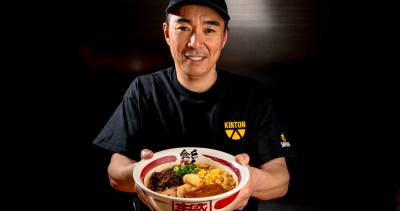Gas rationing of sorts comes to Metro Vancouver and other parts of southwestern B.C.
The NDP government stopped short of imposing odd-even restrictions, which were introduced in New Jersey in 2012 to prevent panic buying
The shutdown of the Trans Mountain pipeline system due to mudslides and heavy rain has led to restrictions on fuel purchases in southwestern B.C.
Public Safety Minister and Solicitor General Mike Farnworth has restricted those not operating essential vehicles to 30 litres of fuel per trip to the gas station.
This measure will remain in place until December 1 in the Lower Mainland, along the Sea to Sky corridor to Pemberton, and on the Sunshine Coast, Gulf Islands, and Vancouver Island.
"Emergency and essential vehicles will have unrestricted access to gas as required," Farnworth said.
He has also announced that under his ministerial order, gas retailers and wholesalers are prohibited from engaging in price gouging or from reselling fuel.
“We are asking people to limit their fuel consumption and vehicle travel at this time and are putting in place orders under the provincial state of emergency to support this,” Farnworth said. “These steps will keep commercial traffic moving, stabilize our supply chains and make sure everyone gets home safely."
Gas-price analyst Dan McTeague has predicted that the new B.C. restrictions will be extended. That's because three of the refineries in Washington state rely on the Trans Mountain pipeline for their fuel supplied.
https://twitter.com/GasPriceWizard/status/1462099862938345476
Farnworth holds off on harsher measures
The public safety minister is encouraging people to use public transit, cycle, walk, or use carpooling to reach their destinations, if possible.
Many media outlets are describing the fuel-up restrictions as as "gas rationing".
However, this order doesn't restrict overall purchases of fuel. That's because a motorist could simply go to another station to buy a second 30-litre allotment to fill up a 98.4-litre tank in a Ford F-150 pickup truck.
True gas rationing would require the province to allocate allotments through some sort of voucher system.
If the province wanted to restrict driving to save fuel, it could have also copied the approach used in Beijing, Delhi, and Paris as part of their temporary smog-mitigation measures.
At those times, motorists with even-numbered plates were permitted drive in those cities on one day and those with odd-numbered plates were allowed to drive on the next day.
The U.S. imposed this "odd-even rationing" for the purchases of gasoline following the Arab oil embargo in 1979. New Jersey adopted this measure following Superstorm Sandy in 2012 to prevent panic buying of gasoline.
Nonessential highway driving restricted
The B.C. government has also restricted nonessential travel on Highway 99 from the junction at Lillooet River Road to the B.C. Hydro Seton Lake campsite access point in Lillooet.
In addition, nonessential travel has been restricted along Highway 3 from the junction with Highway 5 in Hope to the west entrance of Princeton.
There is also a restriction on nonessential travel along Highway 7 from the junction with Highway 9 in Agassiz to the junction with Highway 1 in Hope.
All of these orders have been issued under Farnworth's powers under the Emergency Program Act.
"We are asking people not to travel through severely affected areas—for their own well-being, but also to make sure the fuel we do have goes toward the services people need in this time of crisis,” Farnworth said.















Comments